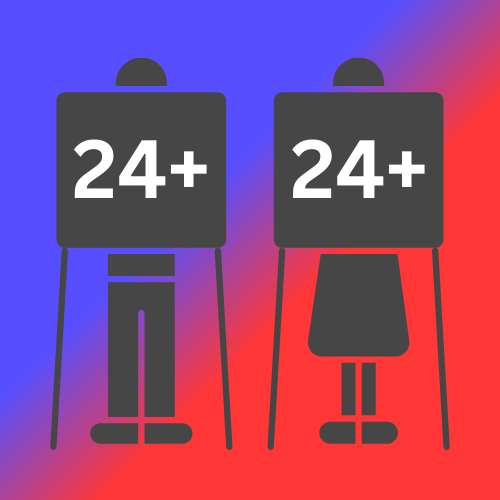
Should teenagers really be allowed to shape the United States’s future through voting? There has been a lot of discourse regarding the age of voting and whether or not to give teens that power. In recent years, there have been arguments for giving young people a voice or, on the contrary, how immature the mind would be. 18 is the current age to start voting. However, I believe in raising the voting age to around 24 years old due to the life experience and brain development that usually isn’t there at the age of 16 or 18.
Some people such as Celine Hamid, a writer for The Abingtonian, defend their opinion with the fact that the brain isn’t fully developed at the age of 18. In the article “Should the U.S. lower the voting age to 16 or increase it to 21,” Hamid presents that early twenties and above would likely have more life experience. In the same article, 16-year-olds are said to potentially lack the necessary life experience and knowledge to make an informed choice on complex political issues.
According to PubMed Central’s article “Maturation of the adolescent brain,” investigators consider ages 10 to 24 to be adolescents and there is still development to be finished. This article states that the brain undergoes a “rewiring” process that is not complete until nearly 25 years old. This leads to the fact that the neurological development of the adolescent brain is more immature than that of a grown adult’s brain.
Some argue that because 16-year-olds can get married and register to vote, they should be able to vote. However, 16-year-olds are likely not ready for a major commitment like marriage. Also, 17-year-olds can join the military in the U.S. despite being a part of the prior section about underdeveloped minds.
In the article “The voting age should be raised, not lowered,” written by journalist and author Ellie Levenson, it; is stated that 16-year-olds being able to vote since they can consent, is comparable to the idea of trying to propose animals should be able to vote due to how underdeveloped minors and animals’ brains are.However, raising the voting age does come at the cost of a few strong impacts. In the article “Should 16-Year-Olds Be Allowed to Vote?” from the Smoke Signal and by their staff writers Sabrina Cai, Joanne Park and Mingxin Wang, decreasing the voting age would mean that young people are even farther away from having their voice heard and doesn’t encourage people to be as well-informed and to fight for changes that are needed. The strong impacts made by raising the voting age should however not destroy the fact that young people are still usually not going to have as much life experience, and thus less maturity than the adolescent brain.
Raising the voting age to 23-25 would have more benefits as there is usually a deeper level of maturity than that of someone who is 16. With all the factors like life experience and brain development, the idea of raising the voting age would have a strong impact for the better of the nation.














